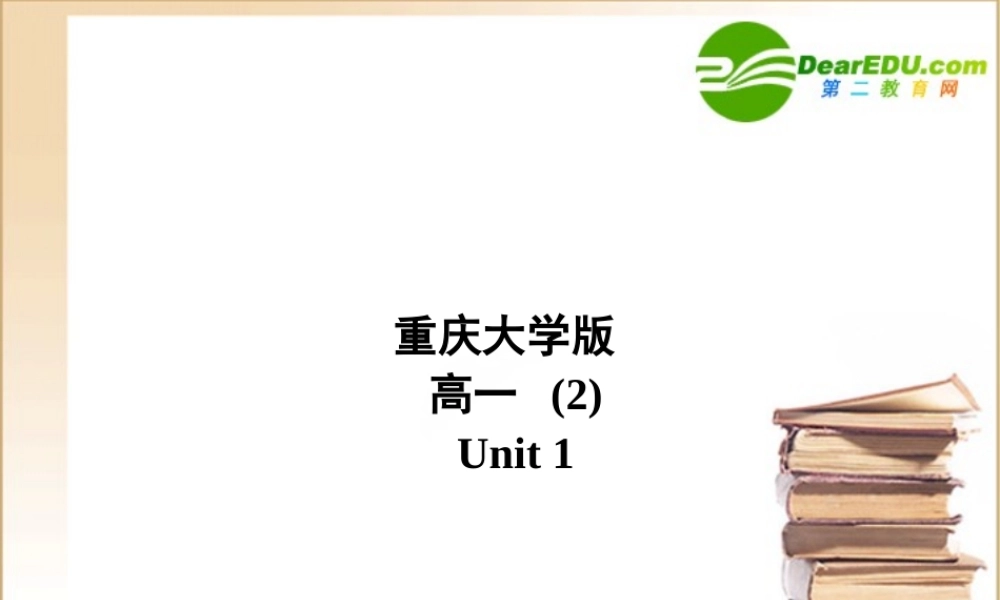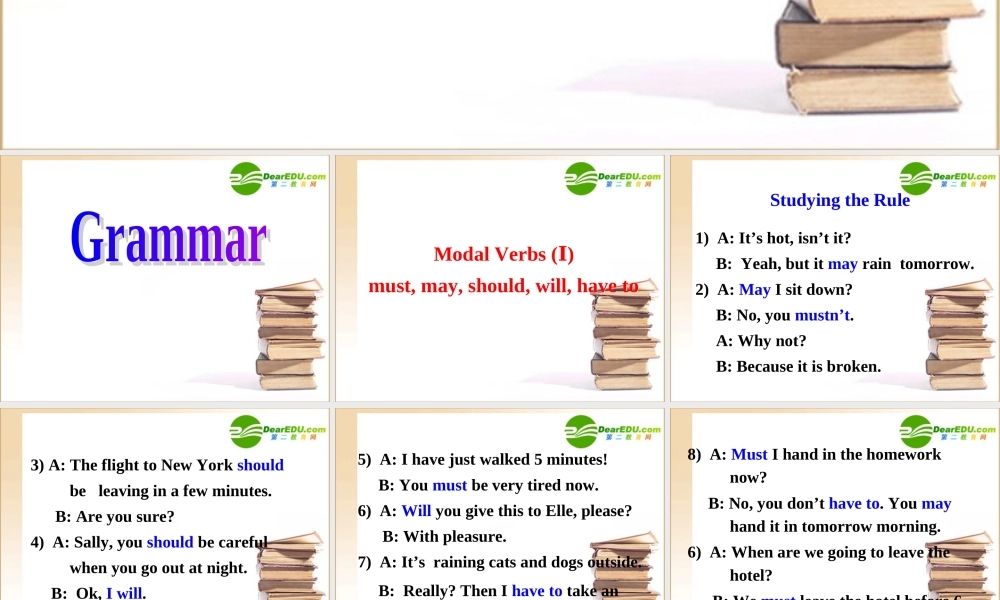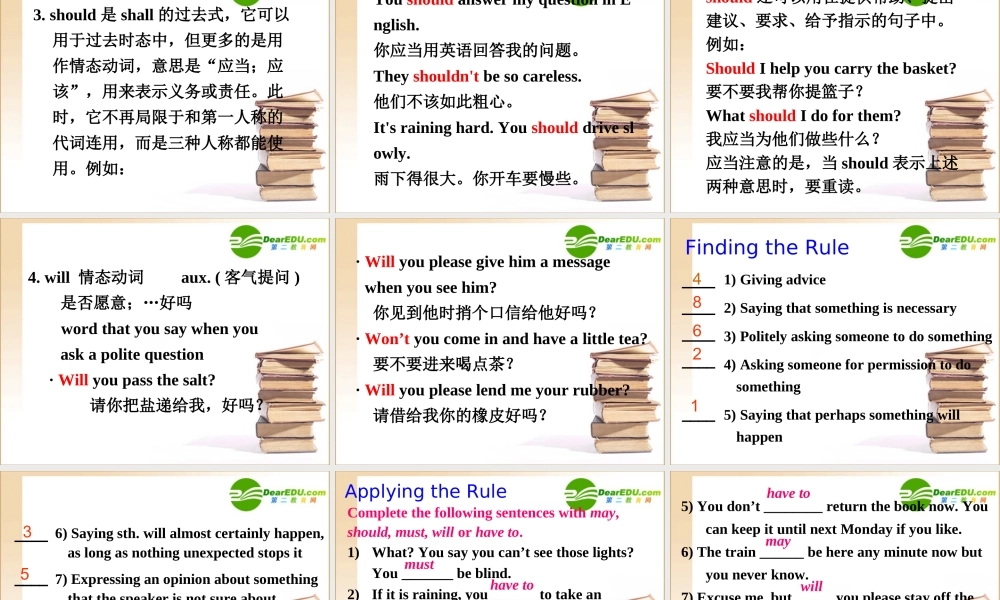重庆大学版 高一 (2)Unit 1Modal Verbs ( )Ⅰmust, may, should, will, have toModal Verbs ( )Ⅰmust, may, should, will, have toStudying the Rule1) A: It’s hot, isn’t it? B: Yeah, but it may rain tomorrow.2) A: May I sit down? B: No, you mustn’t. A: Why not? B: Because it is broken.3) A: The flight to New York should be leaving in a few minutes. B: Are you sure?4) A: Sally, you should be careful when you go out at night. B: Ok, I will.5) A: I have just walked 5 minutes! B: You must be very tired now.6) A: Will you give this to Elle, please? B: With pleasure.7) A: It’s raining cats and dogs outside. B: Really? Then I have to take an umbrella with me.8) A: Must I hand in the homework now? B: No, you don’t have to. You may hand it in tomorrow morning.6) A: When are we going to leave the hotel? B: We must leave the hotel before 6 pm. 1. must 与 have to 的区别 have to 比较强调客观需要 , must着重说明主观看法。另外 have to能用于更多时态 , 比较下面的句子:We had to be there at 10:00. 有时两者都可以用 , 意思差别不大。e. g. We must/have to leave now. must 在表示说话人对事物的推测时候要注意它比 may 肯定得多 , 相当于汉语的“一定”或“准是”。 ( 只有在肯定句中能这样用。 ) We had to be there at 10:00. 有时两者都可以用 , 意思差别不大。e. g. We must/have to leave now. must 在表示说话人对事物的推测时候要注意它比 may 肯定得多 , 相当于汉语的“一定”或“准是”。 ( 只有在肯定句中能这样用。 ) This must be your room . 在回答由 must 引起的问题时 , 如果是否定的答复,不能用 mustn’t, 而需要用 needn’t 或 don’t have to, 因为 mustn’t 是“一定不要”的意思。This must be your room . 在回答由 must 引起的问题时 , 如果是否定的答复,不能用 mustn’t, 而需要用 needn’t 或 don’t have to, 因为 mustn’t 是“一定不要”的意思。2. may...




